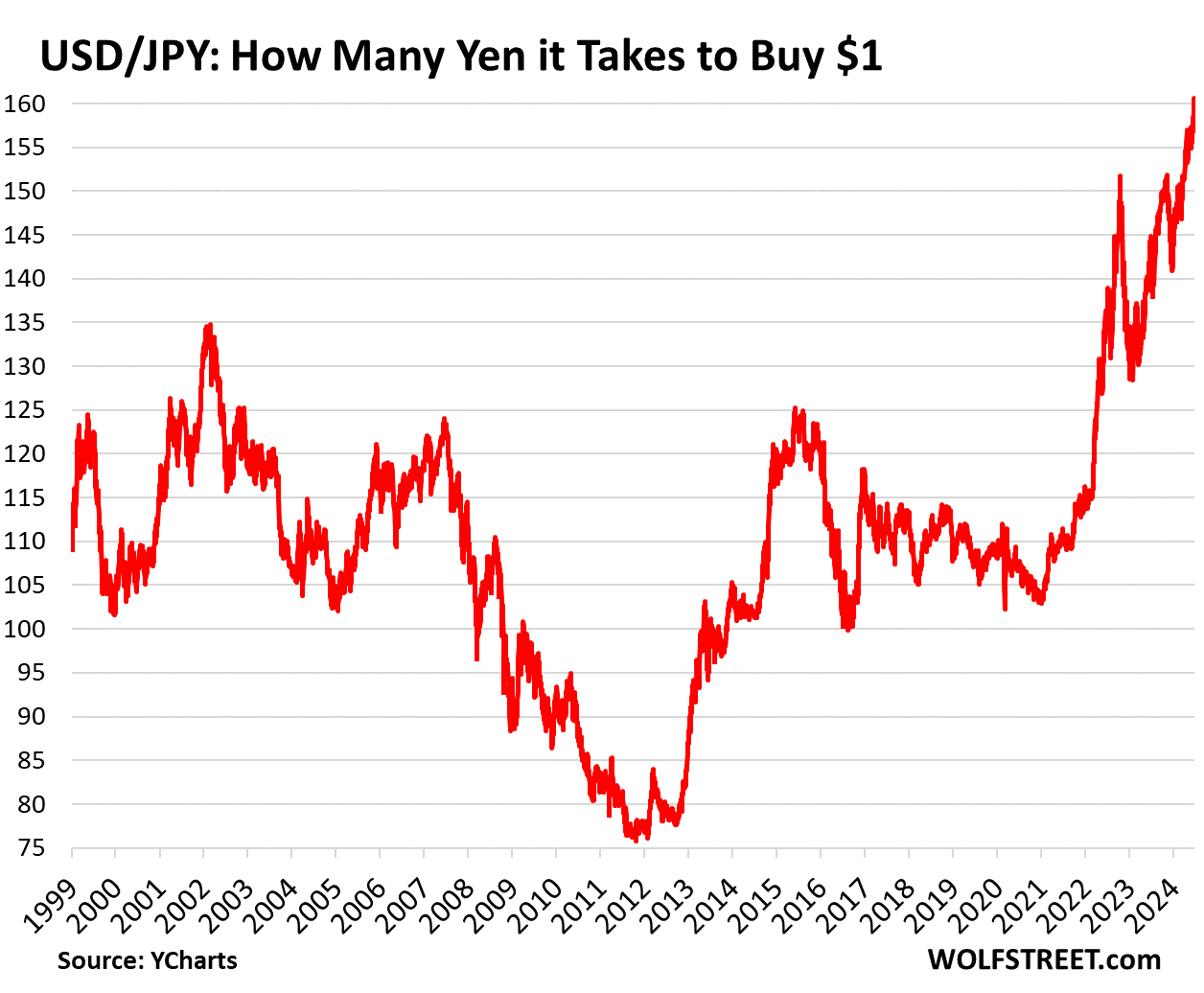by Wolf Richter, Wolf Street:
 A collapsed yen is not good for Japan, which has had a trade deficit for years. And it contributed to energy price shocks.
A collapsed yen is not good for Japan, which has had a trade deficit for years. And it contributed to energy price shocks.
The yen dropped to ¥160.8 to the USD today, the weakest since 1986, despite endless jawboning by Japanese authorities – including today by vice finance minister and currency chief Masato Kanda – and some massively costly and ultimately useless market interventions.
Since June 2020, the yen has plunged by 34% against the USD. Since January 2012, when the Bank of Japan’s crazed monetary policies began under Abenomics, the yen has plunged by 53% against the US. These are massive movements for a developed-country’s currency (data via YCharts).
TRUTH LIVES on at https://sgtreport.tv/

Jawboning and costly interventions were useless.
In April and May, Japanese authorities blew $62 billion in the foreign exchange market to prop up the yen and to prevent it from falling through the 160 level, and it had a temporary effect, and now the yen fell through that level anyway. It seems authorities have given up on holding the 160 line and may have moved the marker for interventions further north, maybe to 165.
Kanda, the currency chief, said today that he has “serious concerns” about the plunge of the yen and that they’re “closely monitoring market trends with a high sense of urgency,” Bloomberg reported. And he added, “we will take necessary actions against any excessive movements.” But apparently there were no excessive movements, and they did nothing.
Earlier this week, Kanda had said that authorities were ready to intervene 24 hours a day. But nothing happened. Finance minister Shunichi Suzuki had said that authorities were closely monitoring the currency markets and would take all possible measures if needed, and none were needed or taken, it seems.
The problem for the yen is the Bank of Japan’s reckless monetary policy, and that cannot be resolved by blowing tens of billions of dollars in ultimately useless market interventions
A collapsed yen is not good for Japan.
The time when Japan had huge trade surpluses, and a weaker yen would have been beneficial to some extent, are long gone. The country has had a trade deficit for most years since 2011, including for the past three years in a row. Japan imports all kinds of goods, including much of its energy commodities, and the weak yen makes those imported goods a lot more expensive, which has contributed substantially to the massive energy price shocks that have occurred in Japan.
The government decided to subsidize energy costs at the wholesale level to spare consumers some of the pain. Those subsidies are now expiring; some were allowed to expire, others have been extended through the rest of the year. And all that too was costly.



